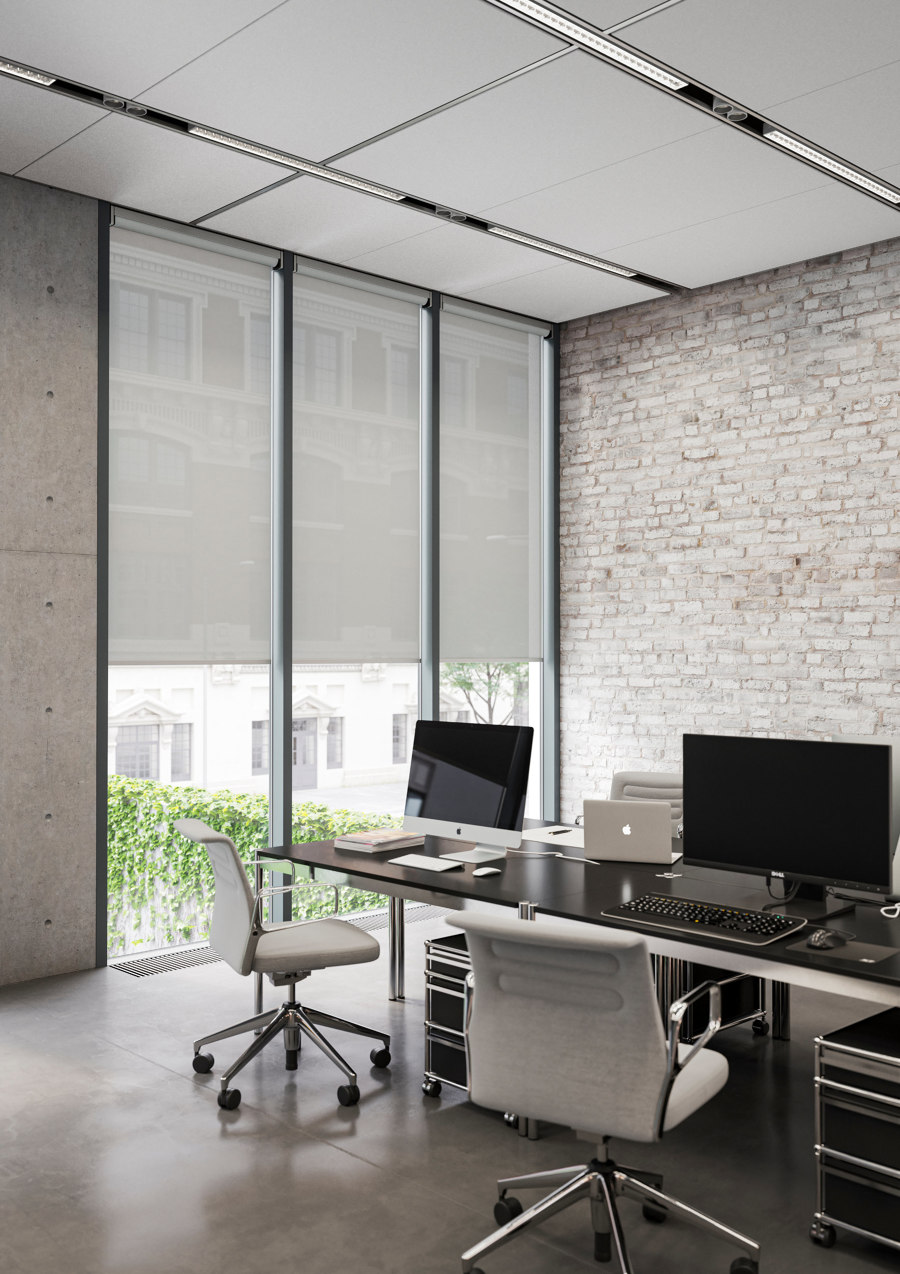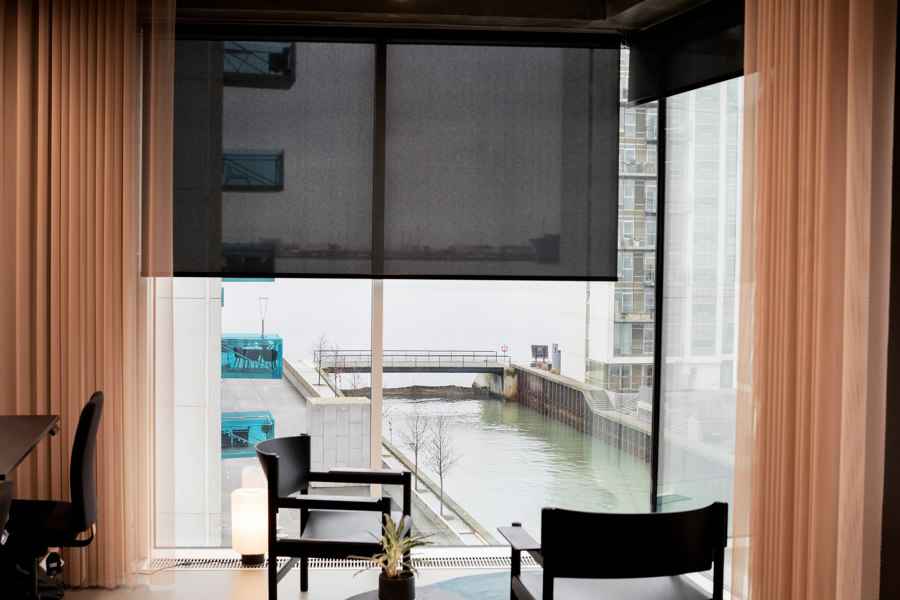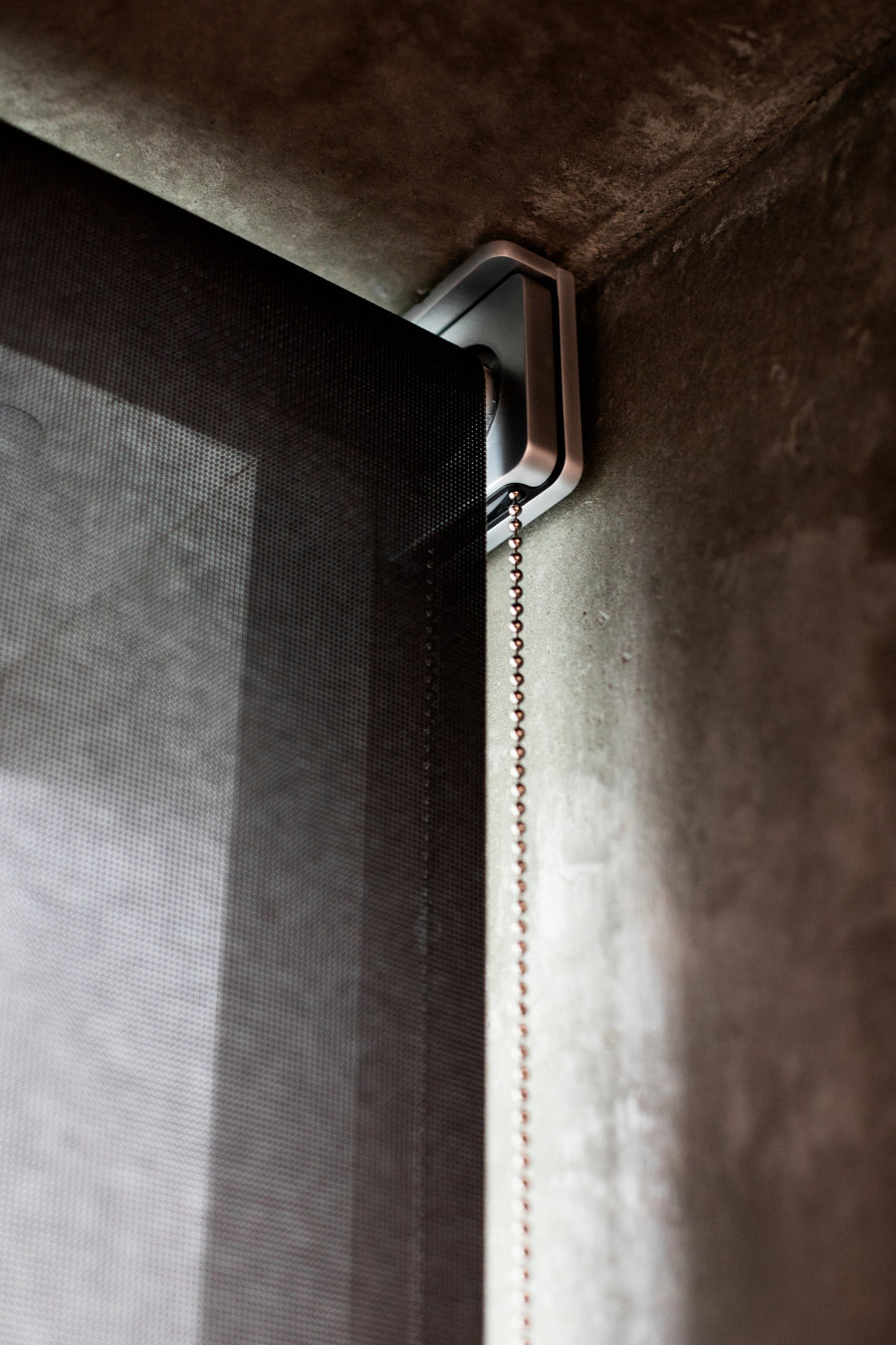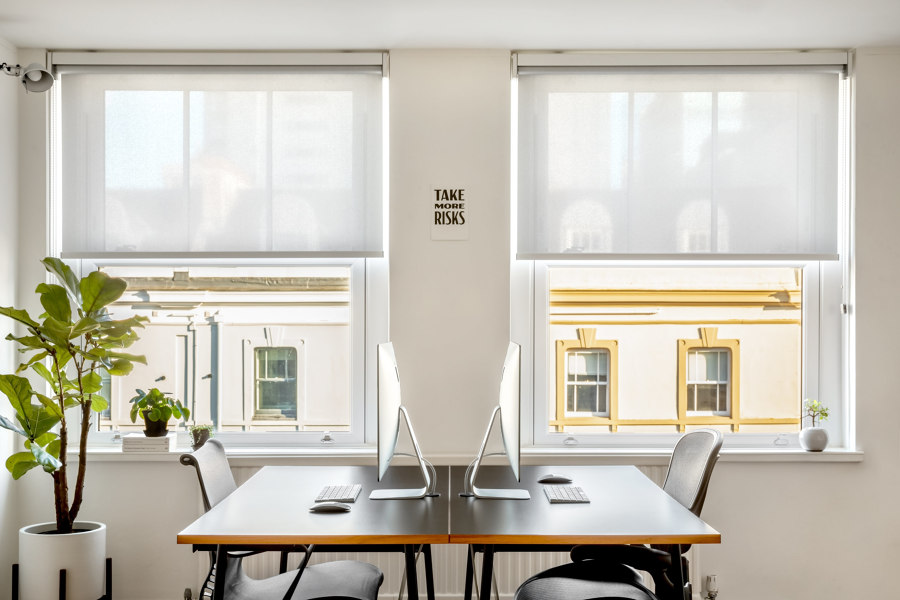Love is blind: Kvadrat Shade
Brand story by Sisse Bro
Eibergen, Pays-bas
10.06.21
Kvadrat Shade’s customisable roller-blind systems not only create comfortable indoor climates all year round, they also help architects and planners reach the energy-efficiency goals demanded of buildings today.
Kvadrat Shade offers innovative solutions that are designed for a future where questions about the environmental impact of buildings can no longer be ignored
Positive energy buildings (PEB) are a trending topic when it comes to environmentally friendly architecture, but what about architecture that has already been built? How can the carbon footprint of existing buildings be improved in a smart and sustainable way? In fashion, they say, the most sustainable type of wardrobe is the one you already own: use what you have. Denmark’s Kvadrat Shade brings the same kind of thinking to the field of architecture by proposing a simple, smart solution for improving upon what already exists.
Kvadrat Shade roller blinds are designed to fit into any type of environment: office, hospitality as well as residential
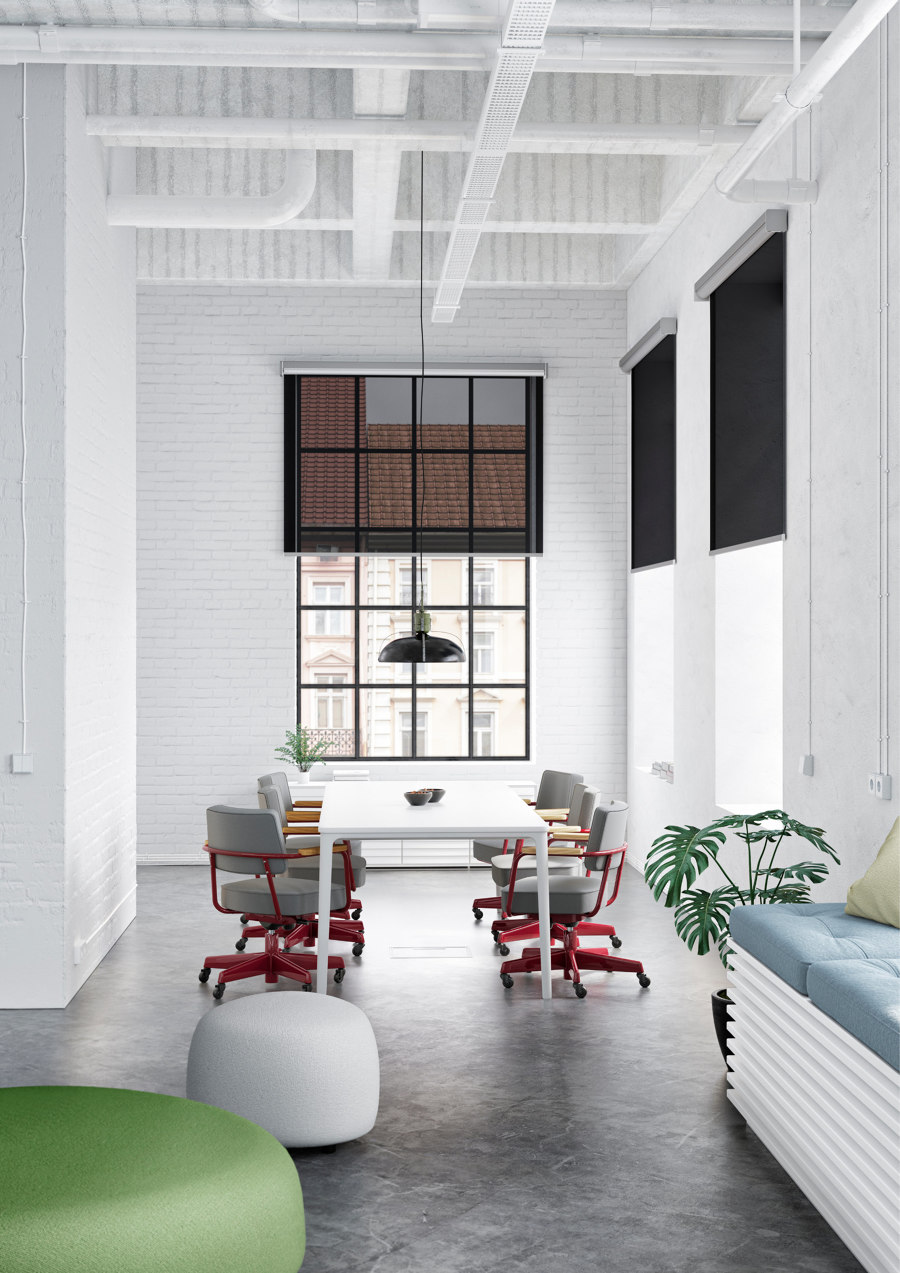
Kvadrat Shade roller blinds are designed to fit into any type of environment: office, hospitality as well as residential
×Kvadrat Shade manufactures roller blinds that are made up of various flexible systems, and which are customisable depending on individual client requirements. These are roller blinds as we know them, but at the same time, not. The meticulousness of their design, as well as the premium quality of the hardware and textiles used in their manufacture, provide a convincing answer to the high functional-, environmental- and aesthetic standards demanded by the building industry today.
Not only does Kvadrat Shade’s metalised fabric generate a comfortable and healthy indoor climate, it results in significant savings in cooling, lighting and heating costs, and subsequently also lowers CO2 emissions
Kvadrat Shade’s mother company, Kvadrat, has been an innovator in the field of textiles since 1968, so it’s not surprising that one of the major differentiators found in its roller blinds is the textile itself. A nanolayer of non-transparent aluminium coats the window-facing side of the roller blind textile, enabling it to reflect up to 80 per cent of solar radiation, insulate and prevent glare, while still allowing for visibility to the outside.
Blocking both heat and cold, but not the view. The roller blinds optimise the indoor climate while at the same time improving the quality and atmosphere of interiors
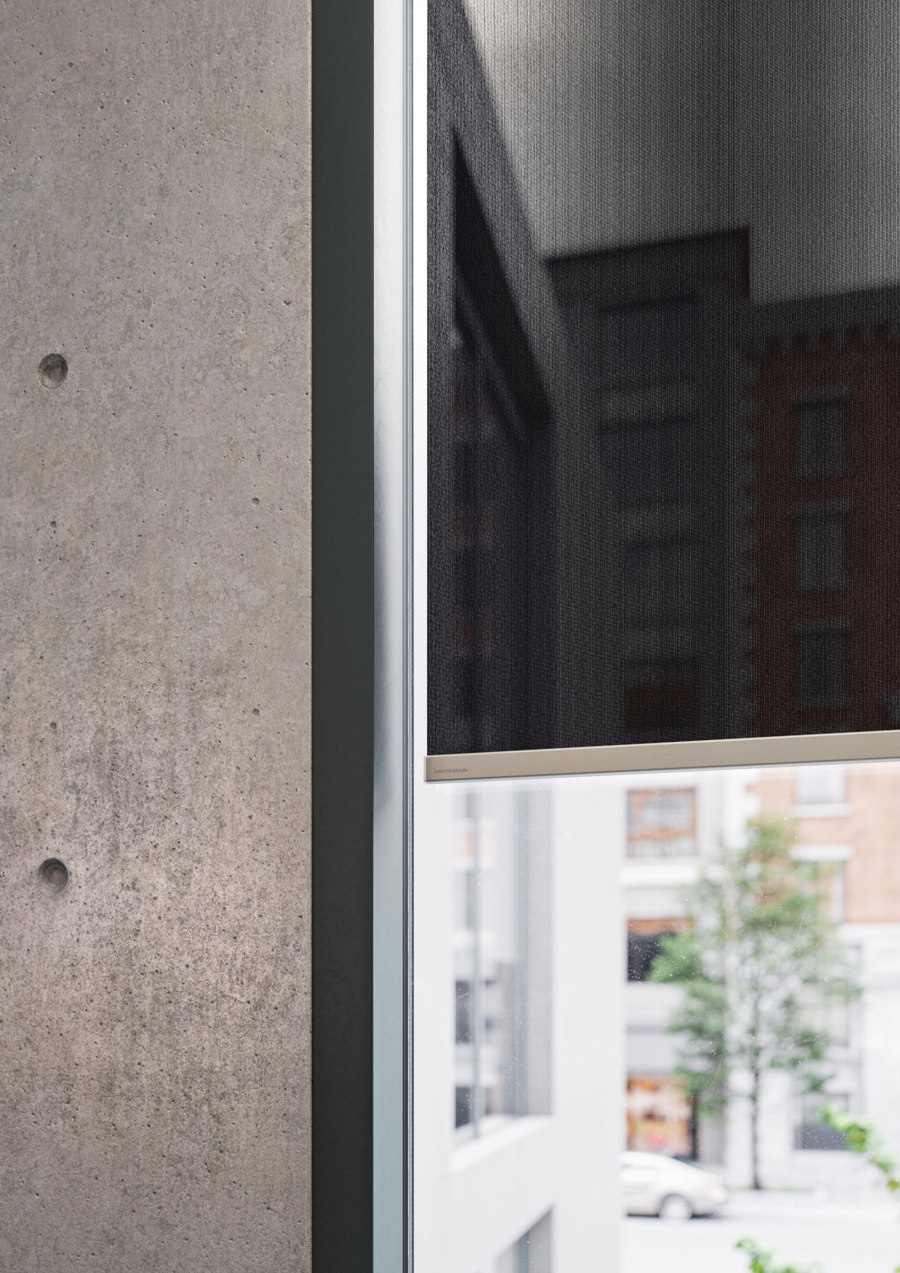
Blocking both heat and cold, but not the view. The roller blinds optimise the indoor climate while at the same time improving the quality and atmosphere of interiors
×The metallised fabric offers benefits in summer- and in wintertime, being able to keep both the heat as well as the cold at bay. Not only does this generate a comfortable and healthy indoor climate, it results in significant savings in cooling, lighting and heating costs, and subsequently also lowers CO2 emissions. And the company has developed an Energy Savings Indicator, an online tool for transparently calculating the impact and efficiency of its solutions.
‘Light is a very subtle materiality, so bringing a little texture, a little colour, I think can just instantly warm up the space, or cool it if you wish to go in the other direction. And definitely complements what you see through the window’
The appointment of French duo Ronan and Erwan Bouroullec as Art Directors is a declaration of how seriously the company views the role of design in all its facets. Having collaborated with Kvadrat since 2006, the Bouroullec brothers are perfectly aware of the values and ambitions of the brand. The roller blind, something so familiar and seemingly banal, has been studied and analysed down to its fundamentals, from the engineering behind it through to its physical design, and also, importantly, how it is experienced by users. The designers have harnessed their significant understanding of space, structure, material and craftsmanship, utilising a diverse approach to the process of creation, learnt over a lifetime.
Woven, opaque, woollen, linen-like – the roller blind textiles are created in a variety of different aesthetic compositions, each offering its own benefits and capabilities
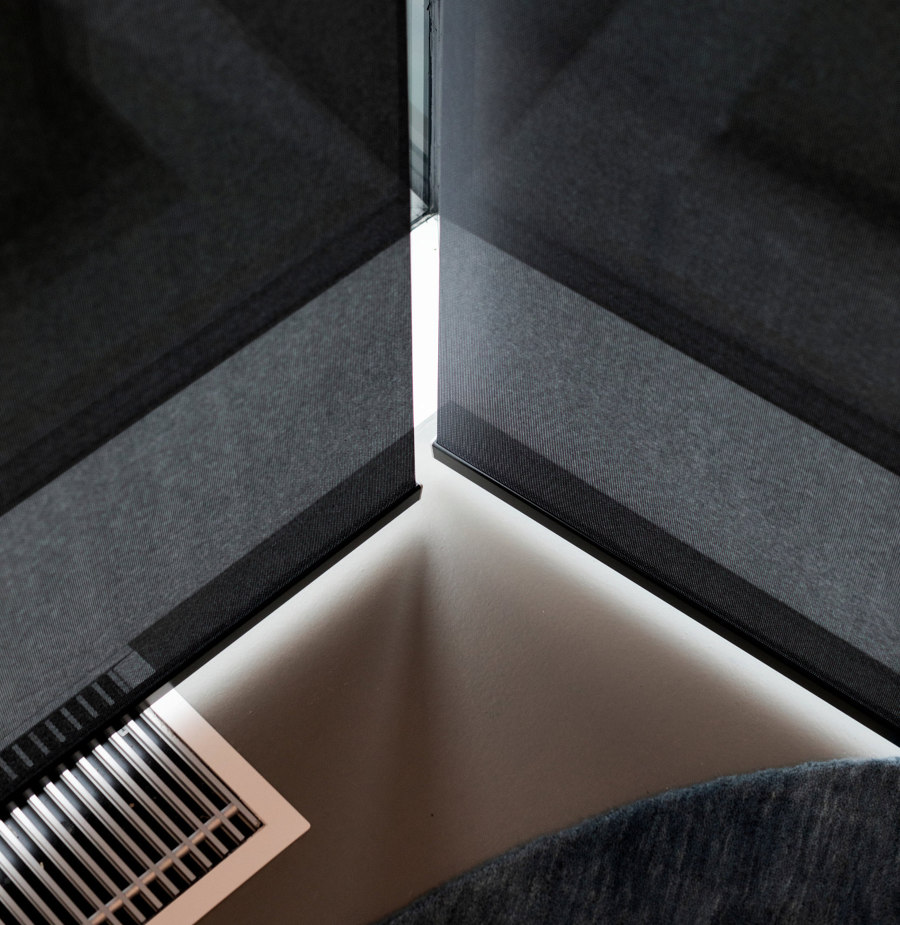
Woven, opaque, woollen, linen-like – the roller blind textiles are created in a variety of different aesthetic compositions, each offering its own benefits and capabilities
×Kvadrat Shade textiles, however, are not merely intelligent, they are equally aesthetic. If you have ever browsed through a simple sample hanger from Kvadrat, you will be aware of the pleasing haptic effects that woven textile can offer. In collaboration with selected designers, Kvadrat Shade has built up a diverse collection of textures and tones, all PVC-free, with variations on warm and cold neutrals, to more elegant and sophisticated themes.
‘I believe that the blinds are a fine-tuning of the atmosphere of the space, and for sure in the way they deal with light’, says Erwan Bouroullec, ‘Light is a very subtle materiality, so bringing a little texture, a little colour, I think can just instantly warm up the space, or cool it if you wish to go in the other direction. And definitely complements what you see through the window.’
Kvadrat Shade’s window covering solutions are the result of a thorough design process, a simple-looking yet highly advanced system that’s built to last
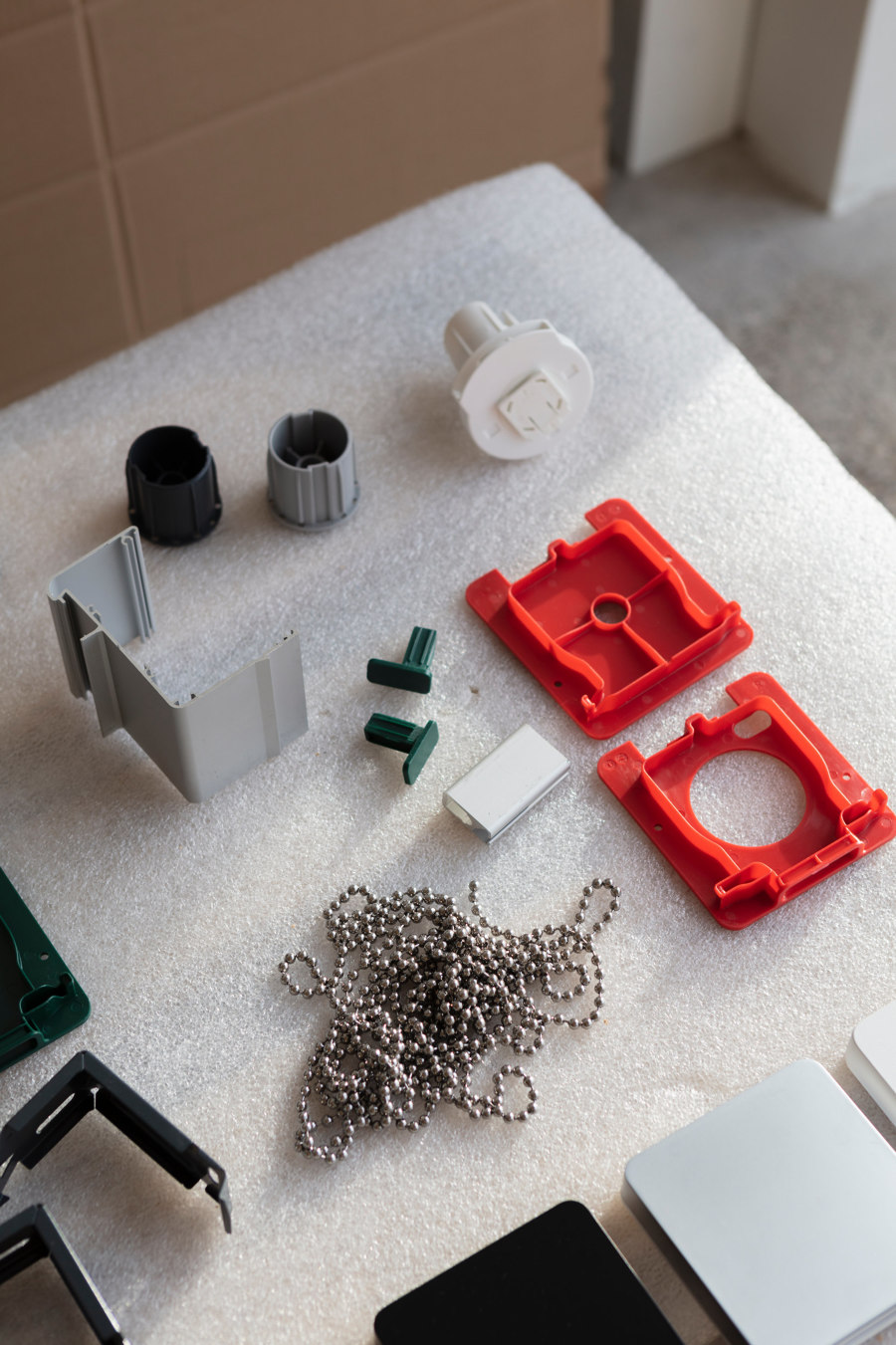
Kvadrat Shade’s window covering solutions are the result of a thorough design process, a simple-looking yet highly advanced system that’s built to last
×Kvadrat Shade strives to be part of the architectural process as early as possible. With different simulations and configurations, it can support architects and planners in creating an economical, cost-saving energy plan, tailored for the specific project. Instead of investing massively in new heavy-duty exterior shadings, facades and window renovations, for example, Kvadrat Shade demonstrates how something as uncomplicated as an interior roller blind system can offer the right solution to optimise and reach significant energy-efficiency targets – a Danish spin on a pressing matter.
© Architonic


